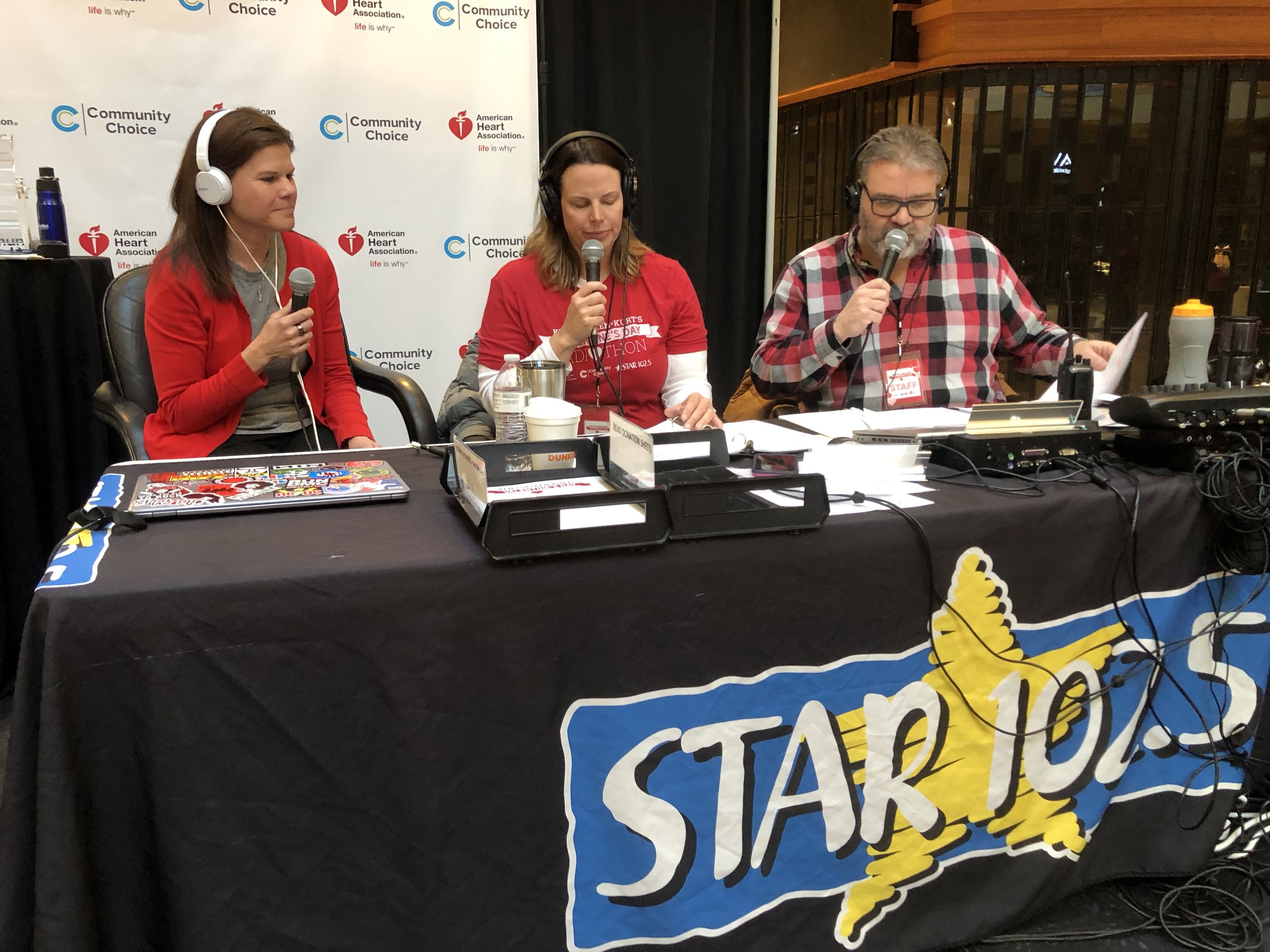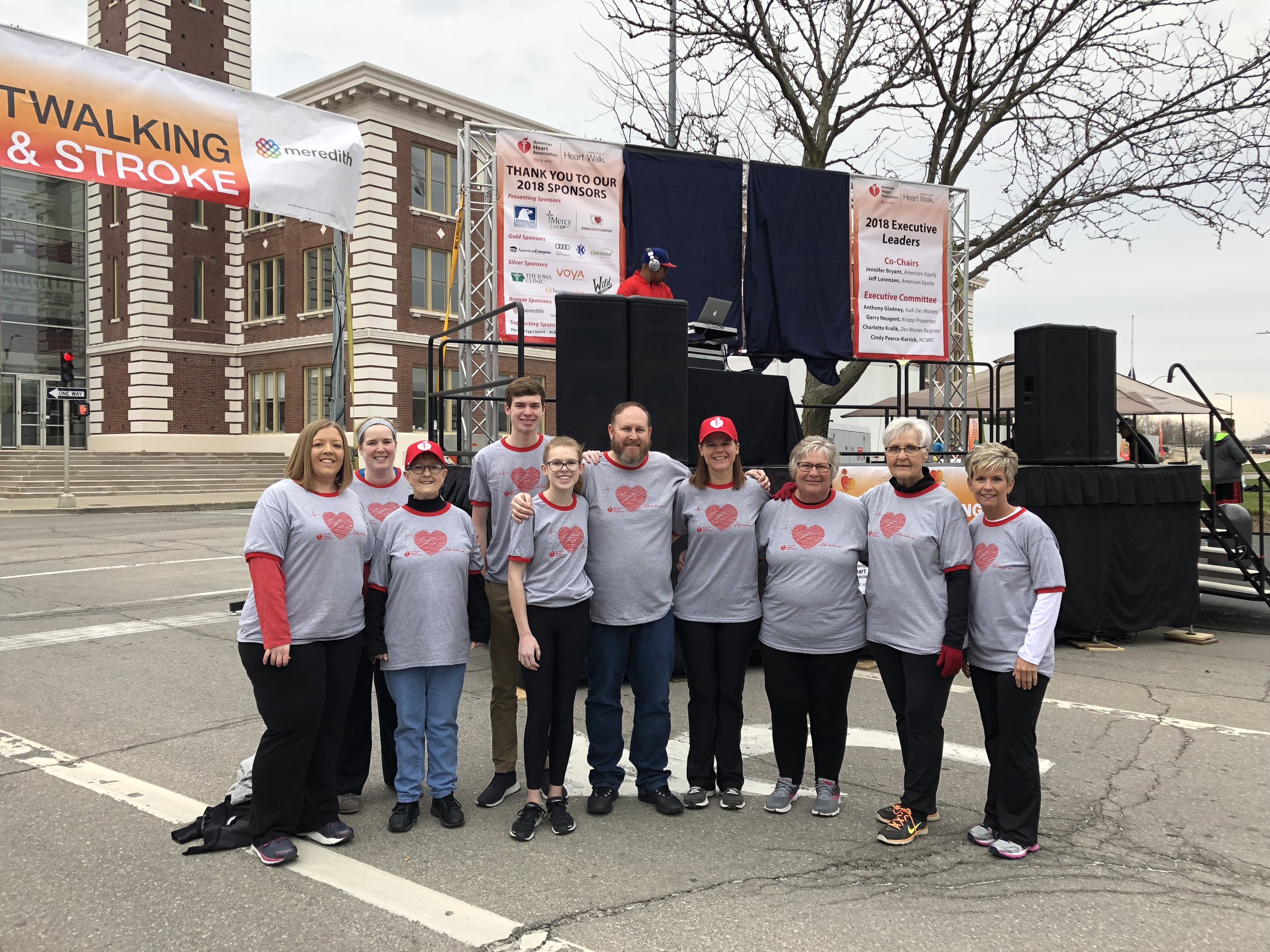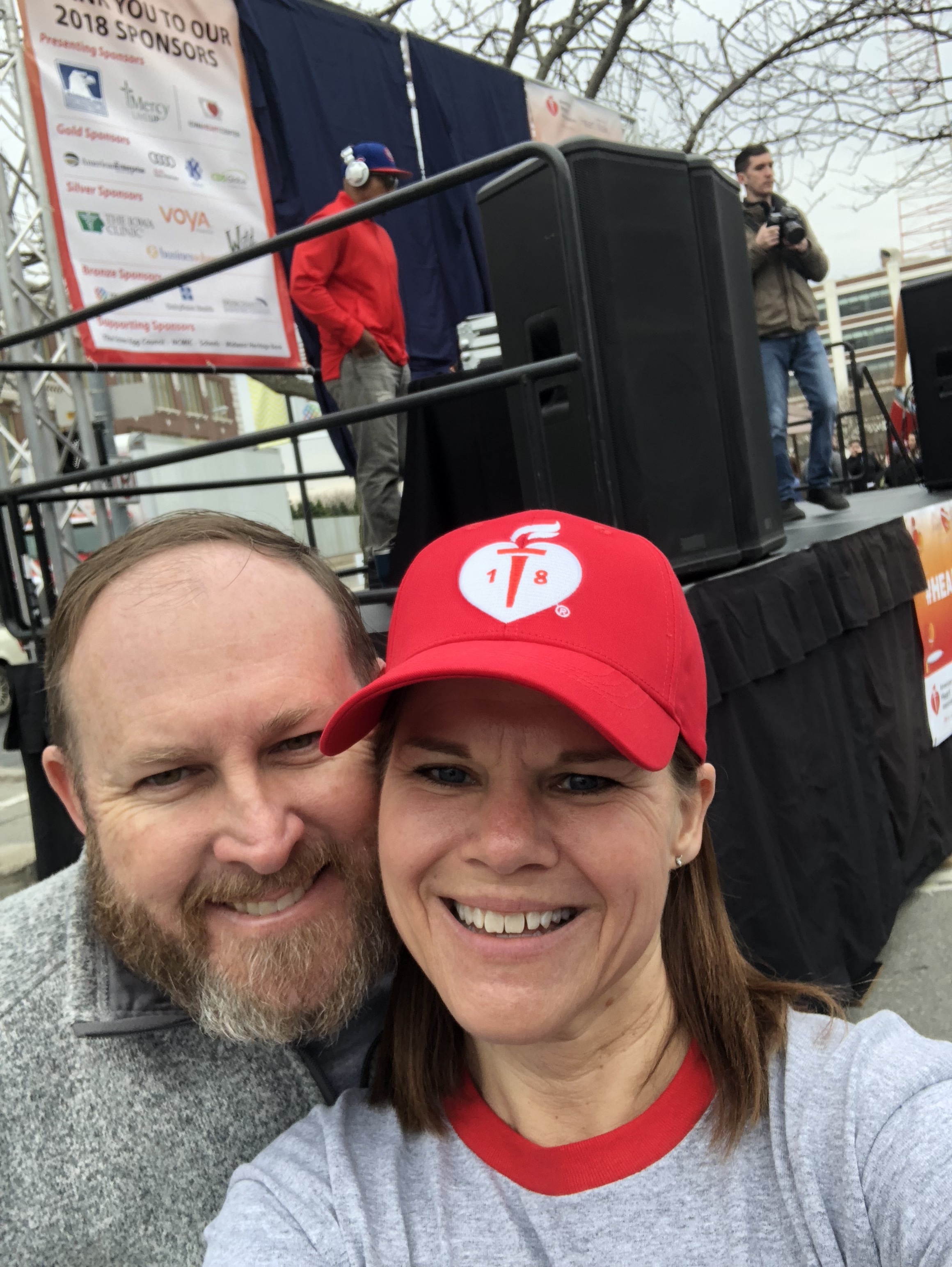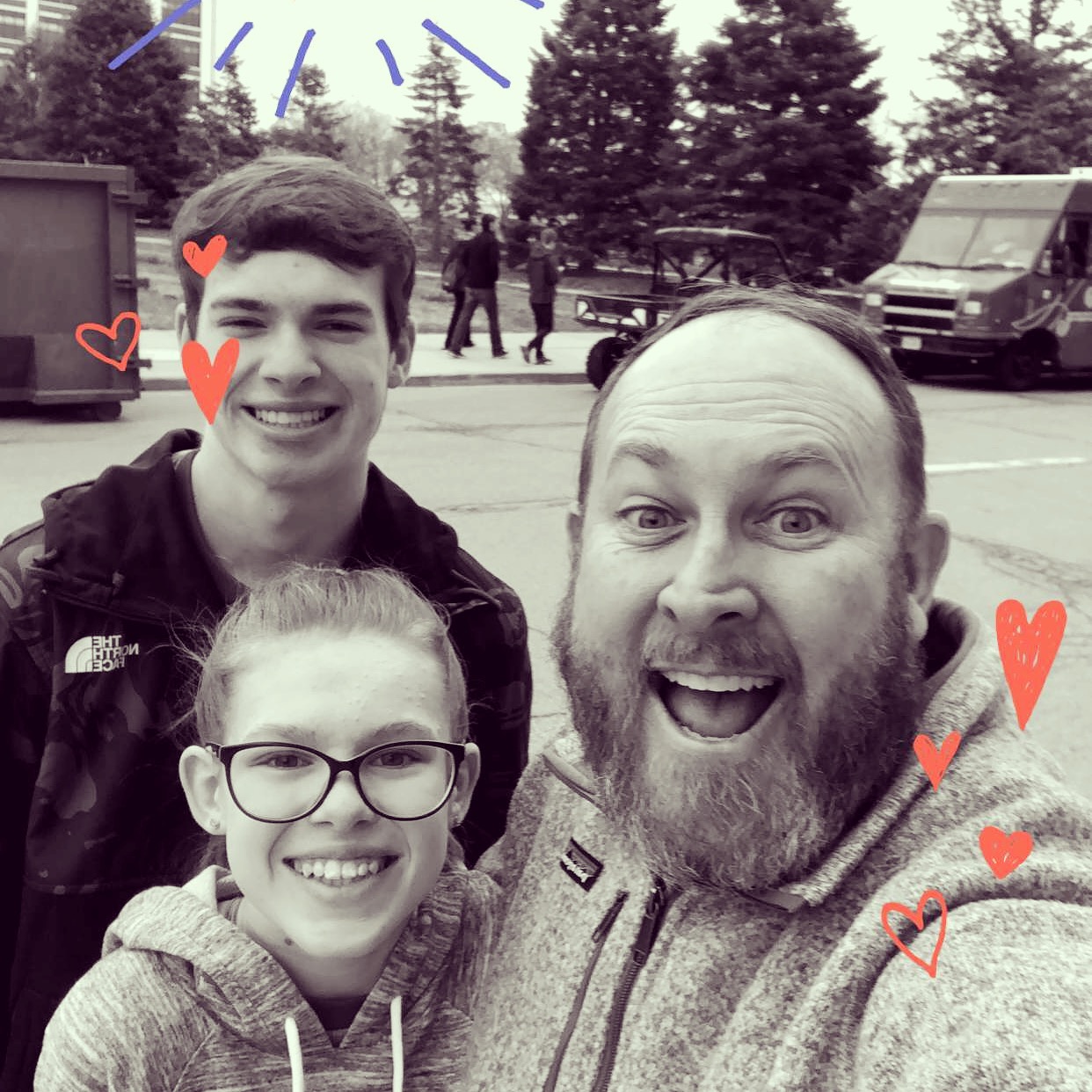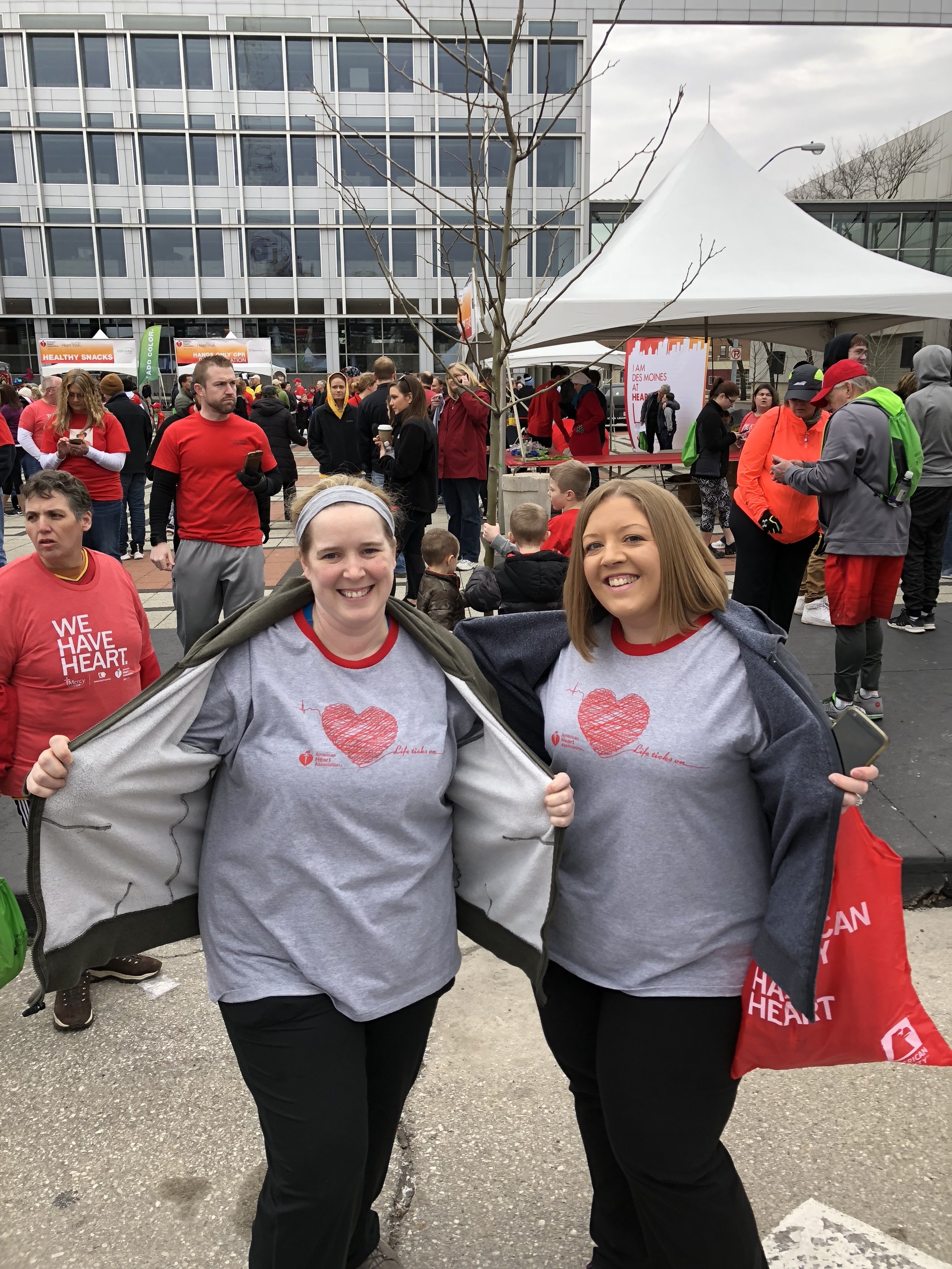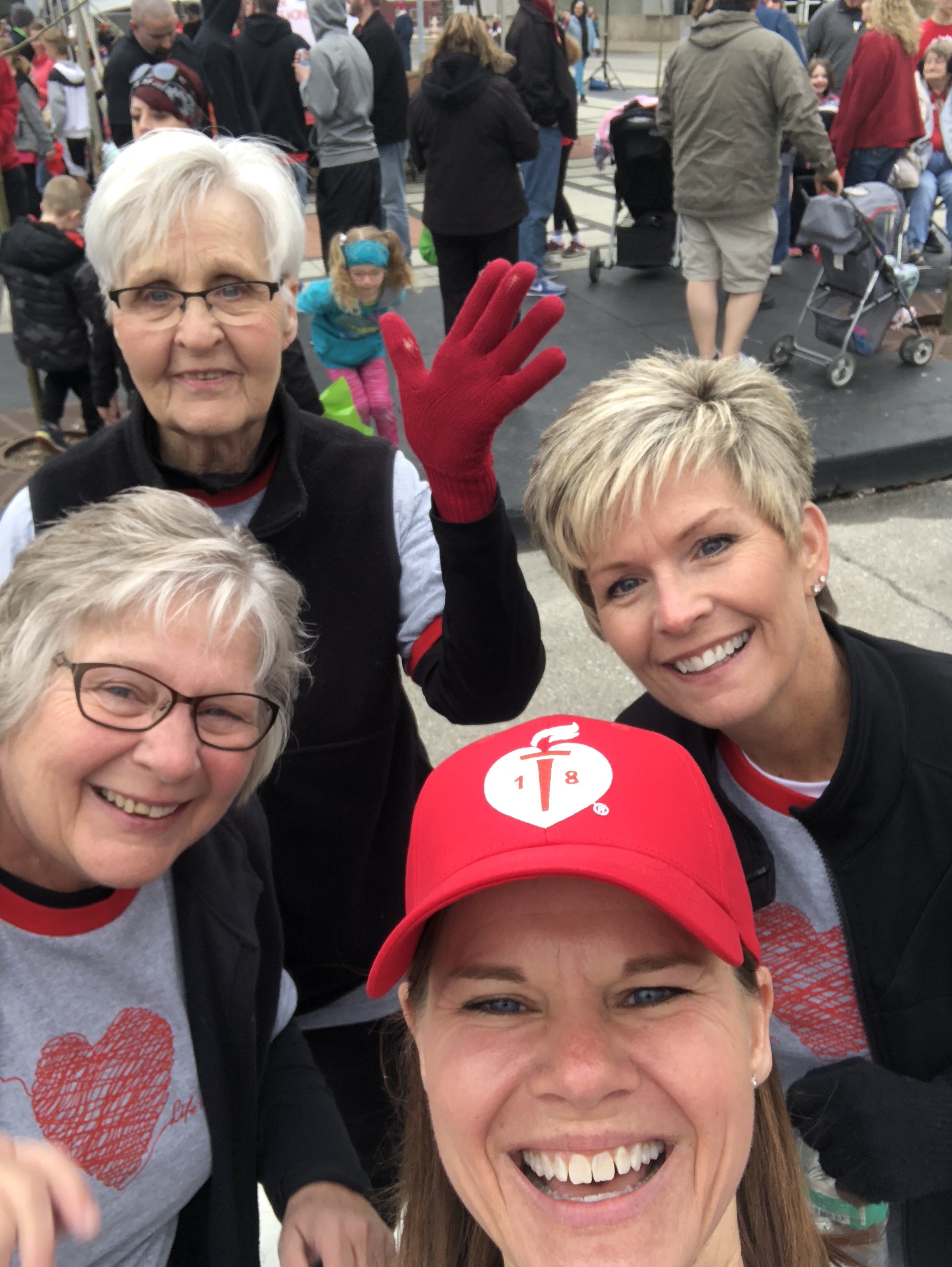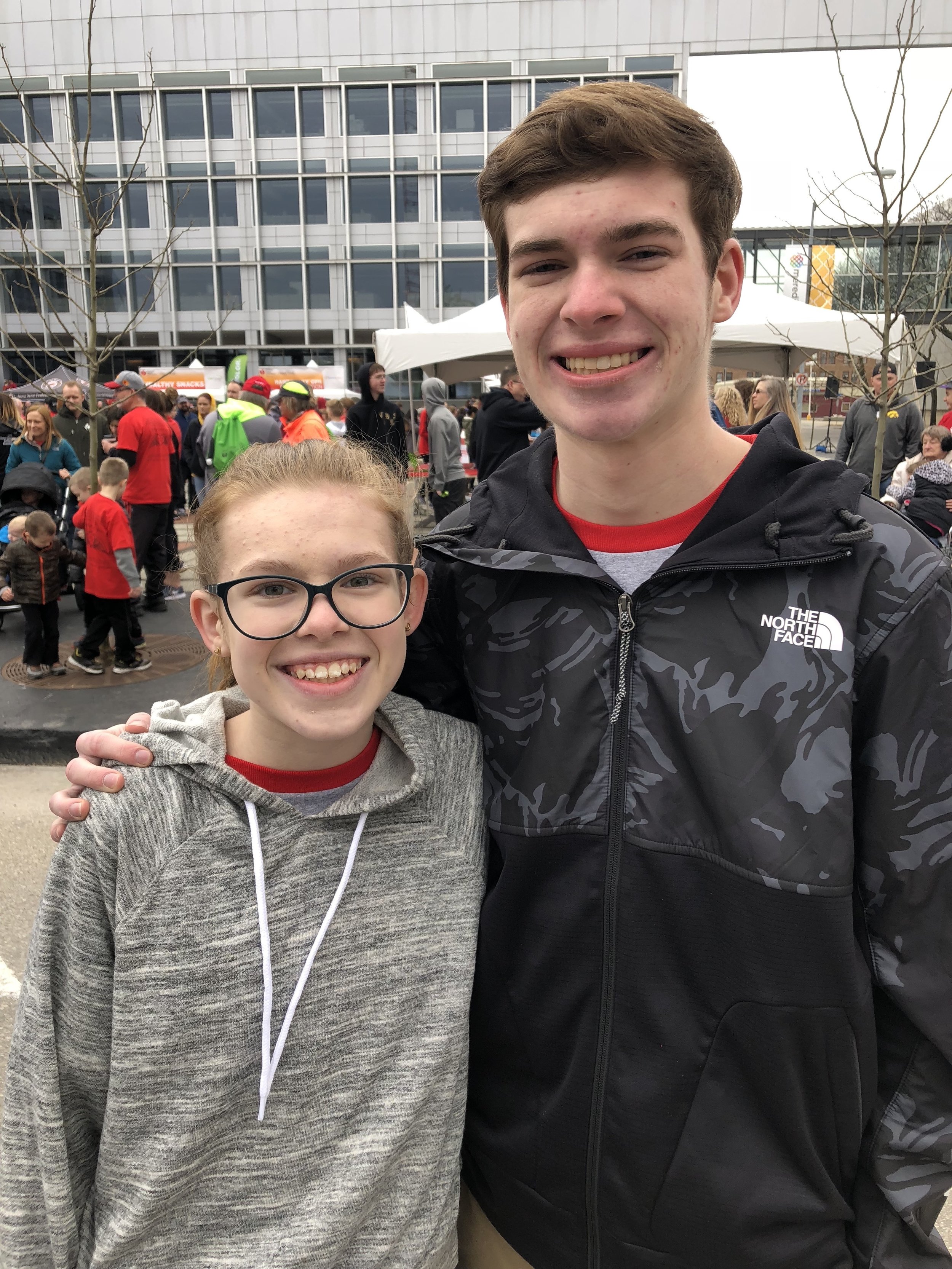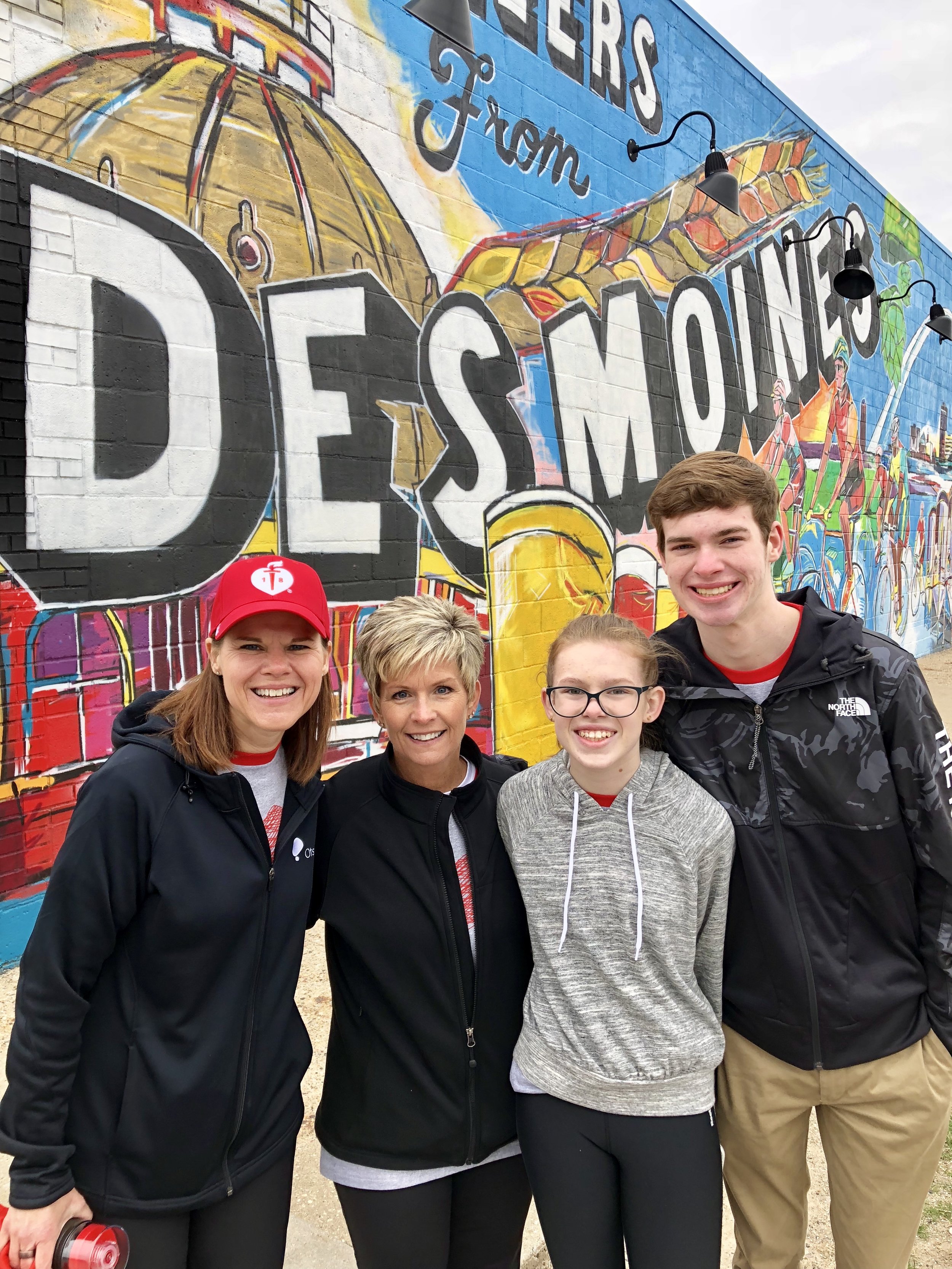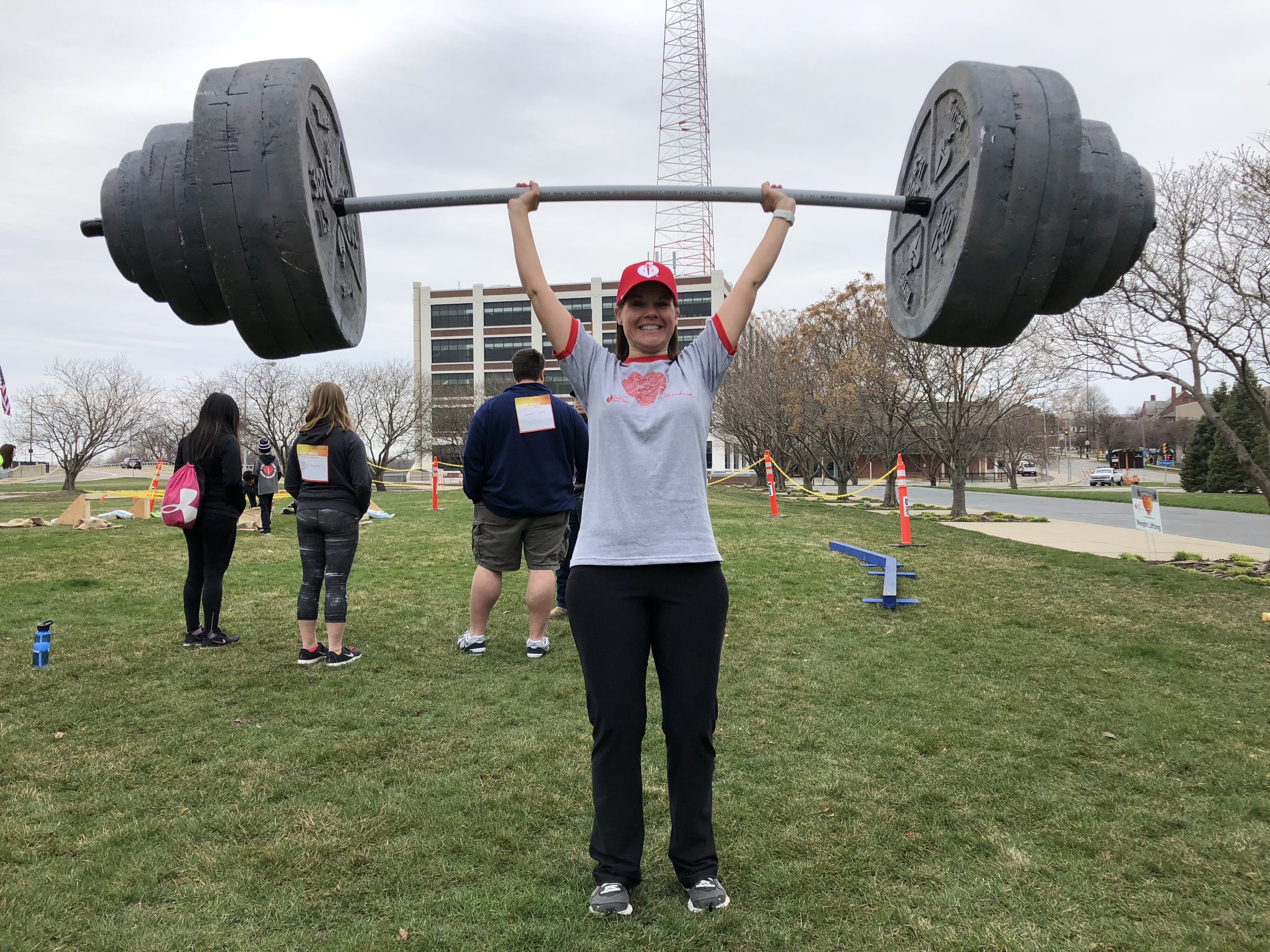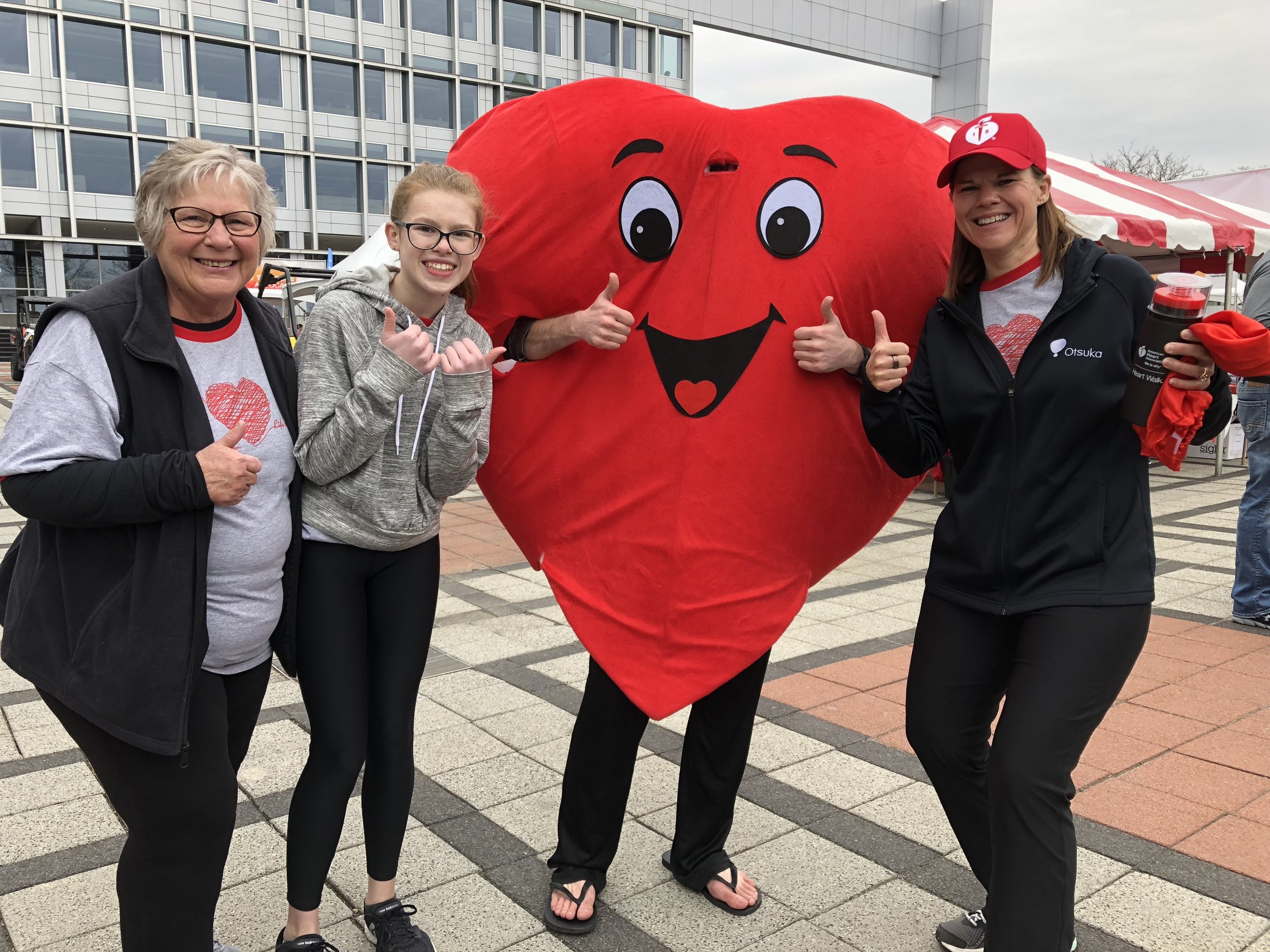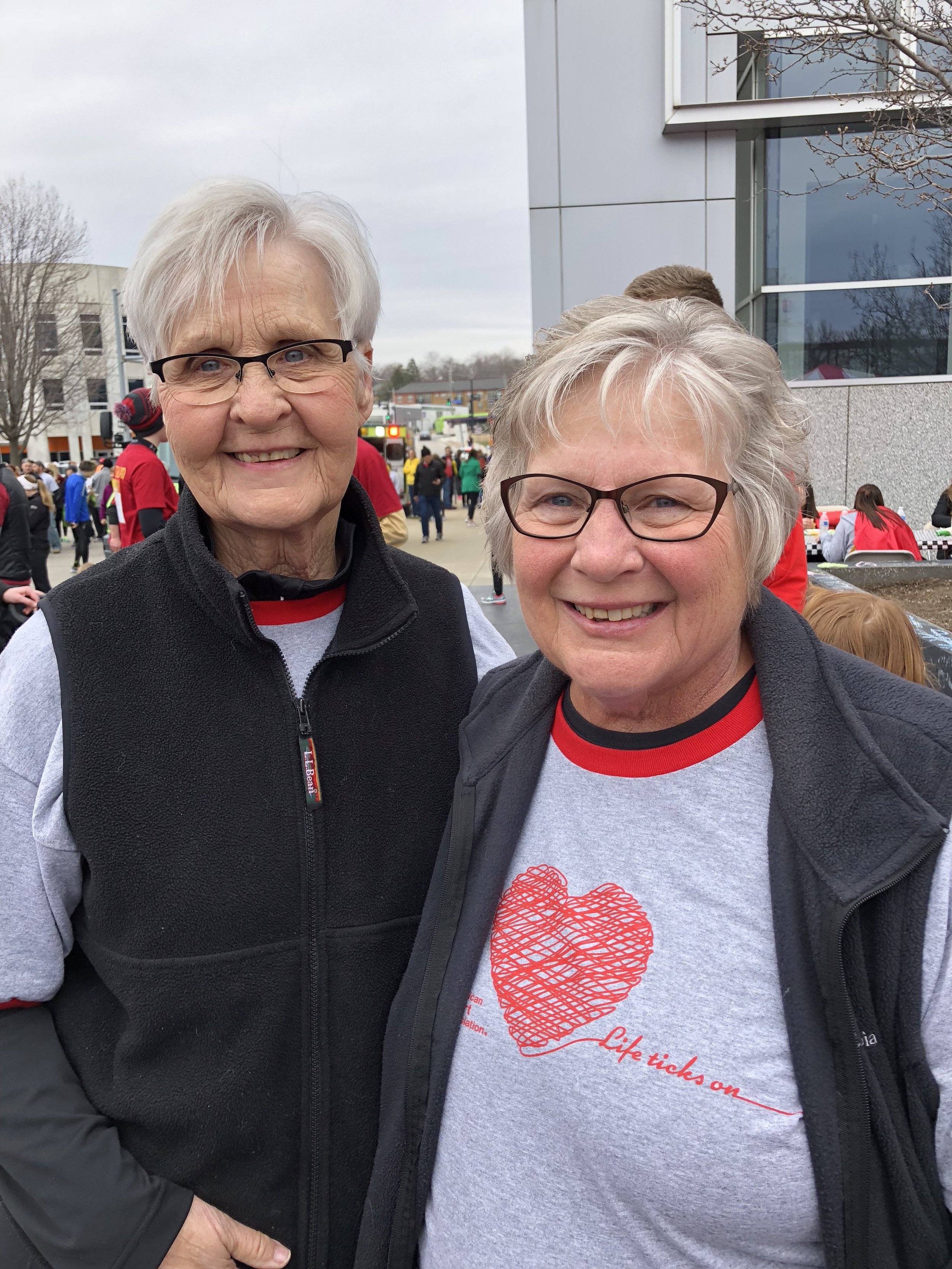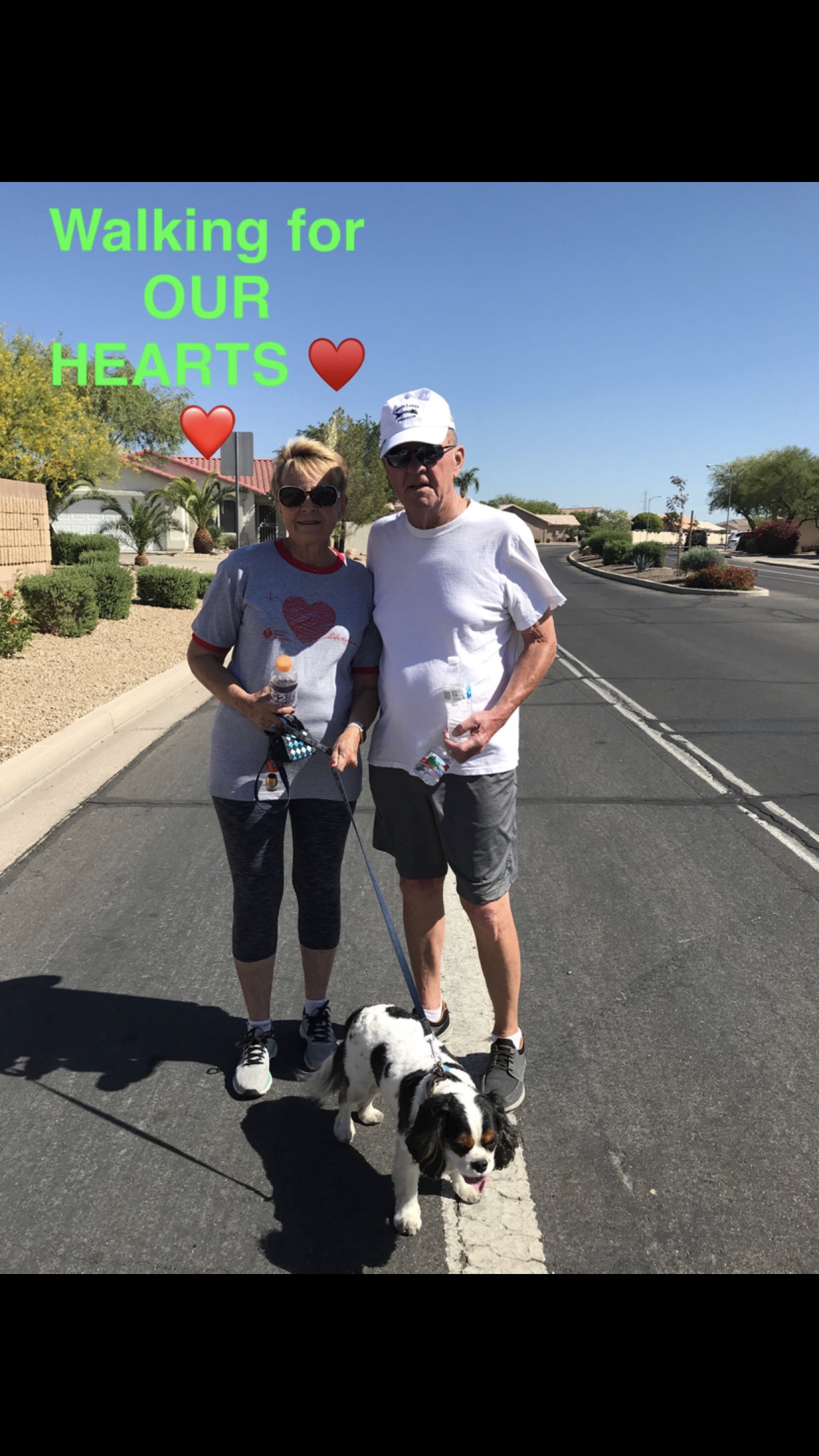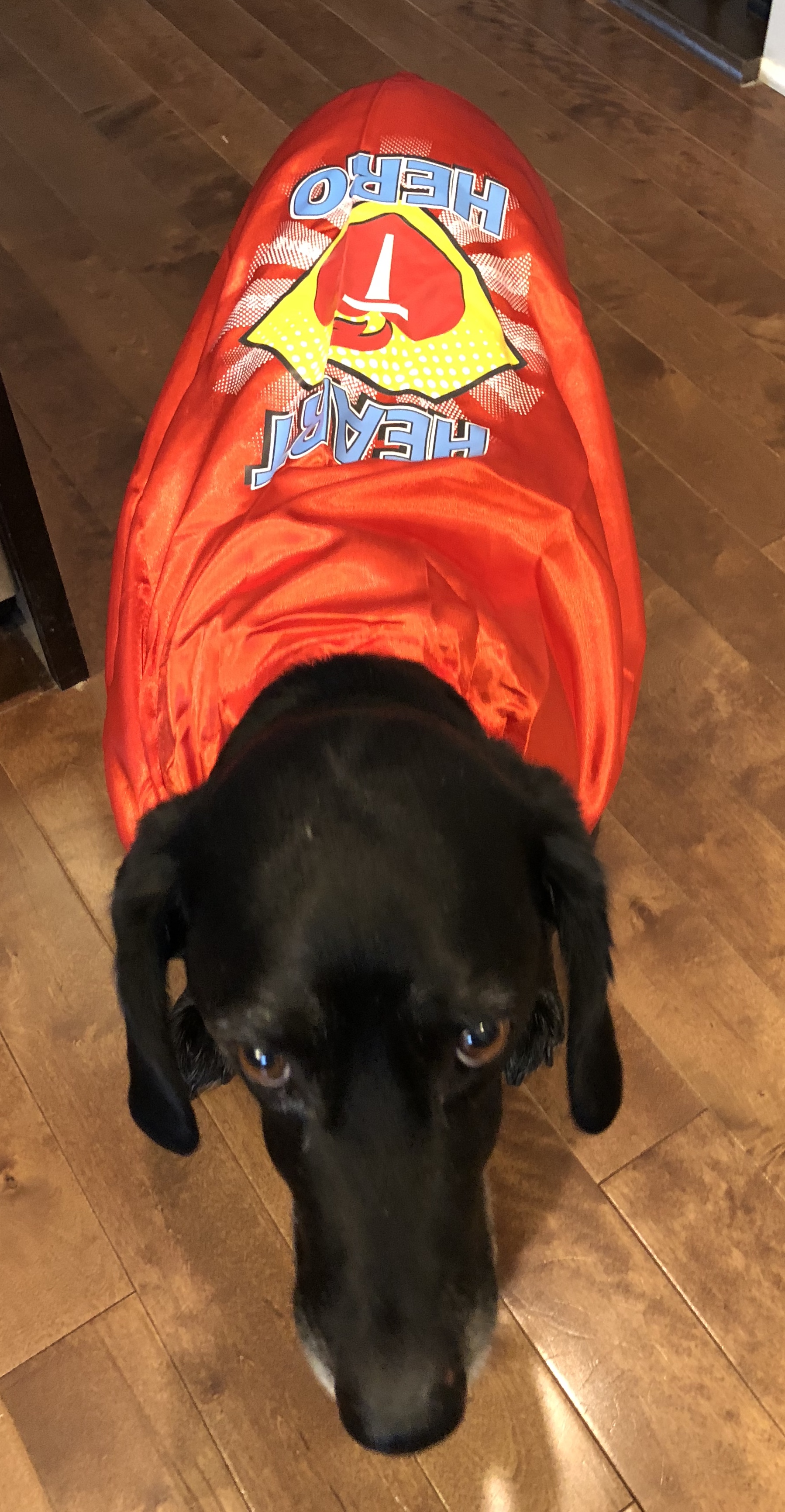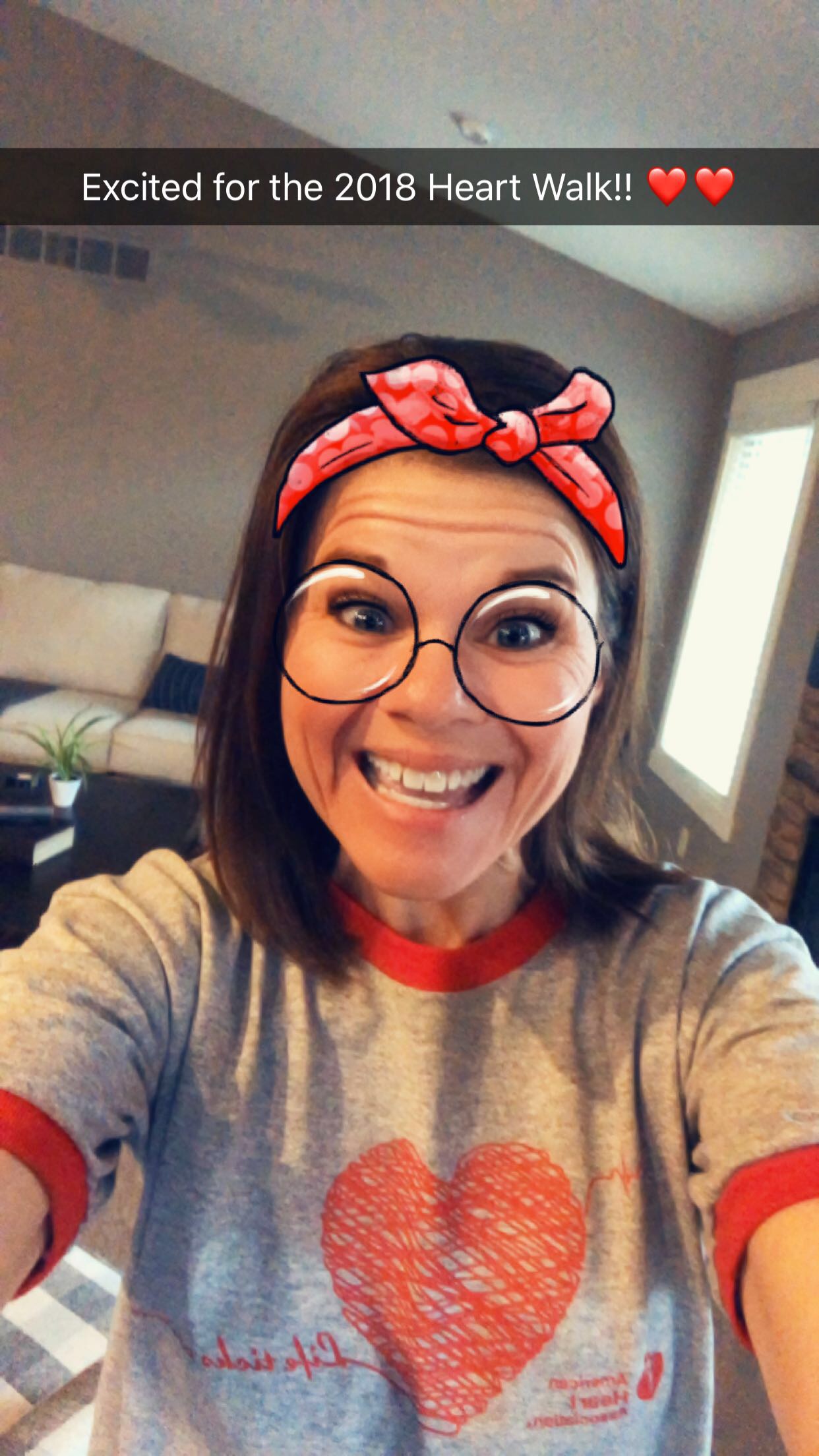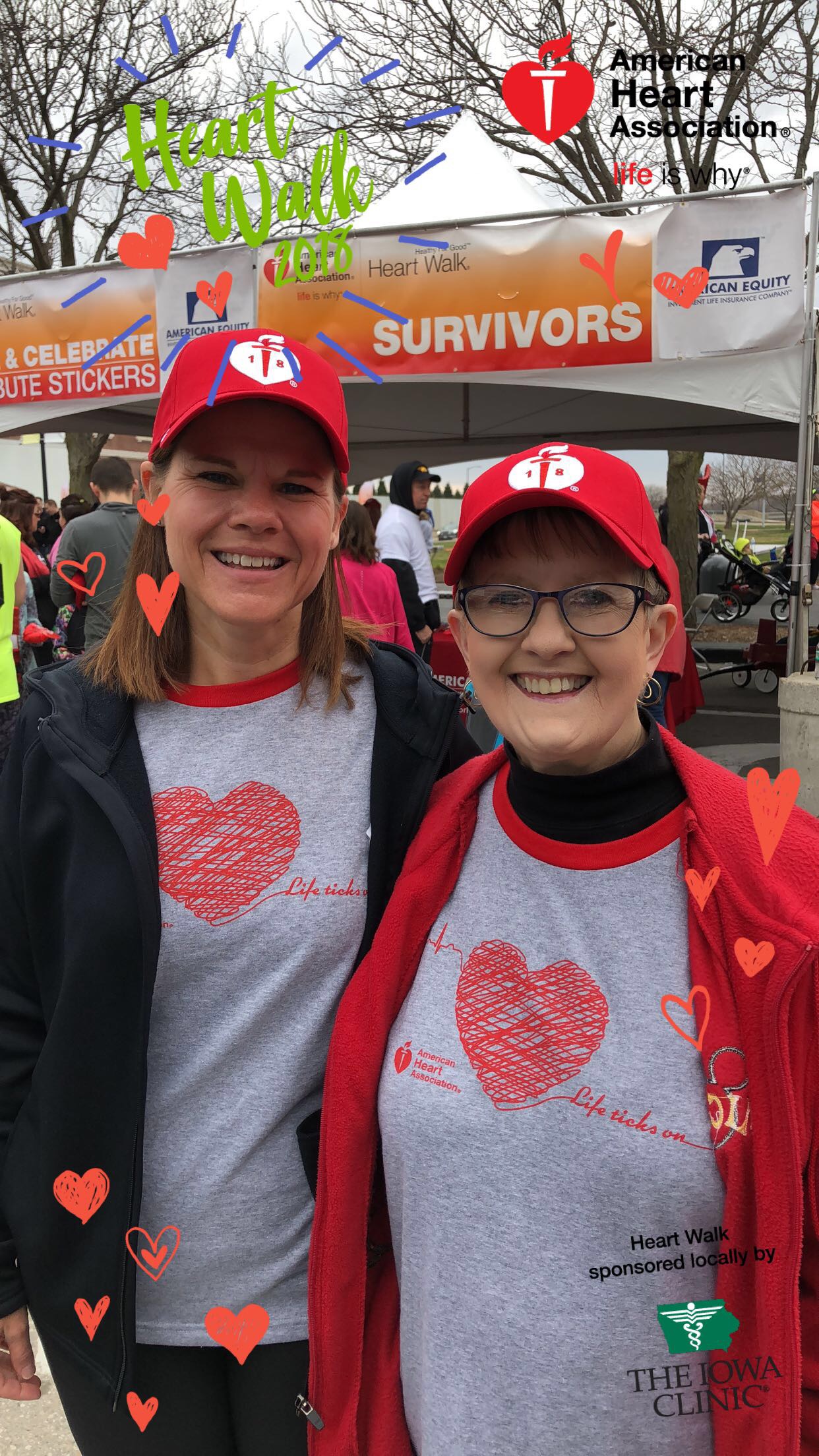It began as a normal Monday and ended up with a call to 911, an ambulance ride to Mercy and hours in the ER to simply leave without answers. I started the week with the excitement of Go Red coming up on Friday and ended up truly understanding why February, Heart Month is so important. As we sat and ate supper, I started to have severe pain in my left neck that radiated down my left arm. All I could think of is "not again!" I looked at Joe and told him what was going on, and we both decided to call 911. While we waited for the paramedics, I kept thinking about the odds that this could happen twice in two years? Is it stress? Heartburn? Gas? Ironically, almost two years since my last heart attack, Ryan the paramedic comes into my house and say "hey, we have to stop meeting like this."
On a side note. You can take it from me. The fear of embarrassment subsides quickly when help arrives. Plus, it keeps the neighbors on their toes when the neighborhood is lit up like a 4th of July parade. What can I say, humor can be the best medicine.
They ran an EKG; Troponin levels were drawn, chest x-ray and a CT scan to rule out another dissection. All were normal thank GOD! But that's when it truly gets scary, what is it? Over and over I explained to the doctors and nurses that this is what happened the week before my last Dissection (S.C.A.D. Spontaneous Coronary Artery Dissection). Two years ago, I went to the doctors, and they kept telling me I must have slept wrong on my neck and they tried to give me muscle relaxants. No cardiac workup was done. At that time I would have never dreamt that it was my heart.
Monday night I was sent home from the ER and told that everything looks good and it must be a musculoskeletal pain. You have to be kidding me! Joe and I were beyond frustrated! We wanted answers and most of all a guarantee that it was going to be ok. I knew it was time to get ahold of my cardiologist.
On the car ride home that night Joe and I kept saying over and over to each other that this is what I had two years ago same exact pain. Why won't the doctors listen? We were beyond frustrated and concerned. As I laid my head on my pillow that night all I kept praying was "please God let me wake up tomorrow!" I called my cardiologist the next morning, and he had answers.
The problem, nobody knows what causes dissections and what you can do to prevent them. So, Cardiologists are treating the symptoms with cardiac medicines indicated for other problems. Leading me to my new Nitro prescription. My doctor thinks that my neck pain on Monday night is due to a spasm in my coronary artery or a small dissection that is not large enough to cause EKG changes, cardiac enzyme changes or need cardiac interventions. With small dissections, your body has a natural way of healing them without the need for cardiac intervention. As my Cardiologist stated " we can go into the cath lab and look but you just end up chasing them." During this time, your body sends out pain signals, i.e. my neck pain to let me know that something is going on. Almost a week later and my neck still hurts, and I'm experiencing sporadic chest pain. With time, I hope this pain will go away.
So remember, February is HEART MONTH for this reason. Women's heart attack symptoms don't just slap you in the face and say "hey, she's having a heart attack!" Many times its very subtle changes in the way you feel that makes you question what's going on. Be your advocate. Question medical staff and ask for a second opinion. If you’re not comfortable with what you are told... ASK more questions and demand more answers. No one knows you better than you!
Heart Attack Signs in Women
1. Uncomfortable pressure, squeezing, fullness or pain in the center of your chest. It lasts more than a few minutes, or goes away and comes back.
2. Pain or discomfort in one or both arms, the back, neck, jaw or stomach.
3. Shortness of breath with or without chest discomfort.
4. Other signs such as breaking out in a cold sweat, nausea or lightheadedness.
5. As with men, women’s most common heart attack symptom is chest pain or discomfort. But women are somewhat more likely than men to experience some of the other common symptoms, particular shortness of breath, nausea/vomiting and back or jaw pain.
(American Heart Association)
If you have any of these signs, call 9-1-1 and get to a hospital right away.



